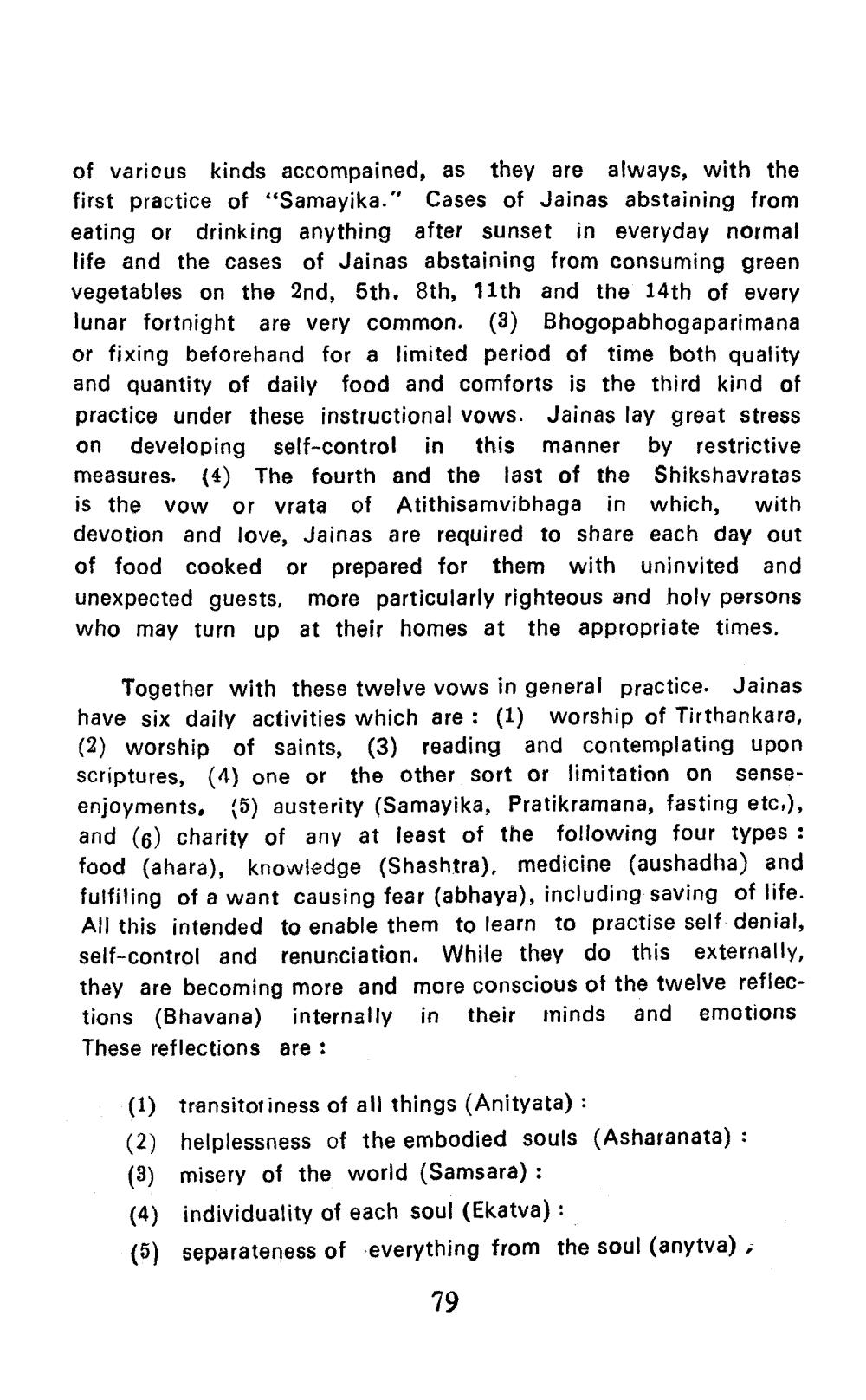________________
of various kinds accompained, as they are always, with the first practice of “Samayika." Cases of Jainas abstaining from eating or drinking anything after sunset in everyday normal life and the cases of Jainas abstaining from consuming green vegetables on the 2nd, 5th. 8th, 11th and the 14th of every lunar fortnight are very common. (3) Bhogopabhogaparimana or fixing beforehand for a limited period of time both quality and quantity of daily food and comforts is the third kind of practice under these instructional vows. Jainas lay great stress on developing self-control in this manner by restrictive measures. (4) The fourth and the last of the Shikshavratas is the vow or vrata of Atithisamvibhaga in which, with devotion and love, Jainas are required to share each day out of food cooked or prepared for them with uninvited and unexpected guests, more particularly righteous and holy persons who may turn up at their homes at the appropriate times.
Together with these twelve vows in general practice. Jainas have six daily activities which are : (1) worship of Tirthankara, (2) worship of saints, (3) reading and contemplating upon scriptures, (4) one or the other sort or limitation on senseenjoyments, (5) austerity (Samayika, Pratikramana, fasting etc.), and (6) charity of any at least of the following four types : food (ahara), knowledge (Shashtra), medicine (aushadha) and fulfiling of a want causing fear (abhaya), including saving of life. All this intended to enable them to learn to practise self denial, self-control and renunciation. While they do this externally, they are becoming more and more conscious of the twelve reflections (Bhavana) internally in their ininds and emotions These reflections are :
(1) transitor iness of all things (Anityata): (2) helplessness of the embodied souls (Asharanata) : (3) misery of the world (Samsara) : (4) individuality of each soul (Ekatva): (5) separateness of everything from the soul (anytva),
79




